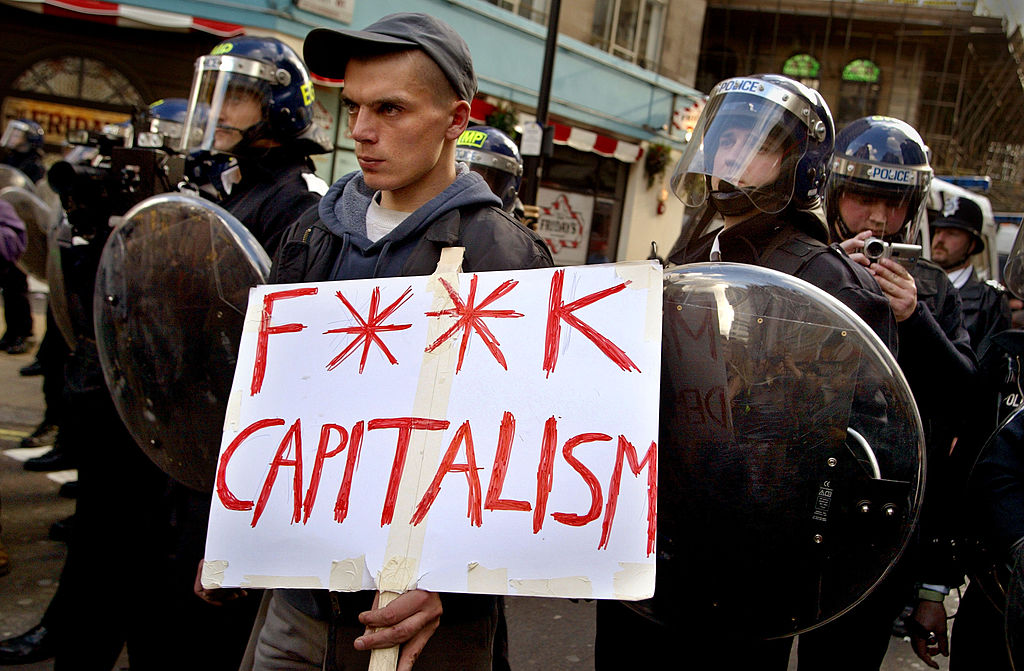Which is Britain’s favourite — and least favourite — ideology? To find out, polling company YouGov has asked the public for their opinion on 12 “-isms”, from communism to conservatism.
The results are fascinating. Top of the list is environmentalism, of which 64% of the public had a favourable opinion versus 18% who viewed it unfavourably. By contrast, the most unpopular of the 12 is fascism, to which the public reaction is overwhelmingly negative.
Perhaps the most interesting finding is that socialism is more popular (38% in favour and 36% against) than capitalism (only 30% in favour and 45% against). What’s more, twice as many people (10% of those asked) were very favourable towards the former worldview compared to the latter.
| More Britons have a favourable view of socialism than capitalism |
So is the UK essentially socialist — or, at least, leaning in that direction? Britons were given a chance to vote for socialism in 2017 and 2019, when Jeremy Corbyn was leader of the Labour Party. Both times they declined to do so, by a narrow margin in 2017 and overwhelmingly two years later. It’s also worth noting that YouGov recorded a strongly negative response to both communism and anarchism, which join fascism at the bottom of the ideological league table.
Each of the 12 -isms needs to be understood on at least two levels. There’s the academic meaning of the words, of primary interest to political scientists and ideological obsessives, and then there’s how normal people react to them as labels.
For instance, most Britons naturally associate conservatism with the Conservative Party. That’s why there’s such a huge divergence in opinion between Tory voters (79% of whom are in favour of conservatism) and Labour voters (only 13% of whom have a positive view of conservatism). There may be a philosophical distinction to be drawn between actual conservatism as the 18th-century thinker Edmund Burke would recognise it and the output of today’s Conservative Party, but not in the public mind.
As for socialism, the public perceptions focus on the social part rather than the -ism. Tony Blair was well aware of that and famously redefined Labour’s creed as (note the hyphen) “social-ism”, by which he meant the “moral assertion that individuals are interdependent”. Actual socialists who believe in a centrally-planned economy still exist, of course, but for most people it just means security, solidarity and clapping for the NHS.
With capitalism, however, it’s the other way round: people associate the word with what they don’t like about the system (fat cat bankers), rather than what they do (such as not living in a subsistence economy). American research shows that compared to “capitalism”, alternatives like “free market” poll much better with the public. So, to take a capitalist view of the matter, capitalism is a damaged brand. As such, it’s not really worth worrying about when better words are available.
Populism is a damaged brand as well. According to the YouGov findings, it’s unpopular even with Reform UK voters. That’s why you won’t find it anywhere in the party’s manifesto; words such as “change” and “common sense” are used instead. Nevertheless, this hasn’t stopped the ideology that dare not speak its name from gaining ground.
Similarly, believers in economic liberty shouldn’t be too worried if the British people literally prefer socialism to capitalism. With the right words, the case for free enterprise can still be fought and won.











Join the discussion
Join like minded readers that support our journalism by becoming a paid subscriber
To join the discussion in the comments, become a paid subscriber.
Join like minded readers that support our journalism, read unlimited articles and enjoy other subscriber-only benefits.
Subscribe